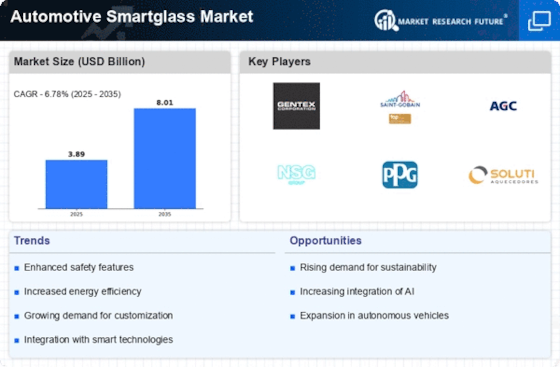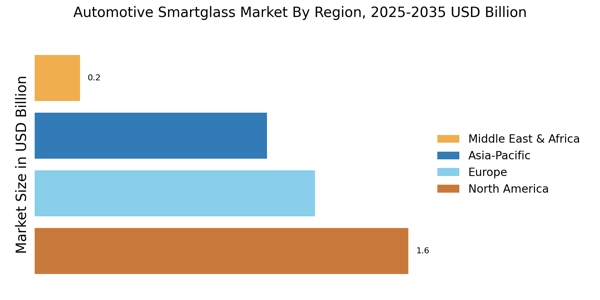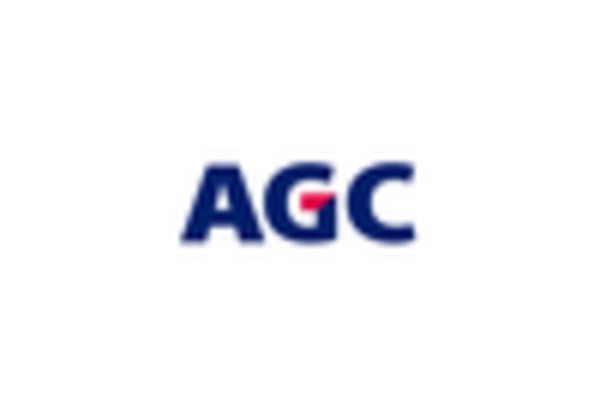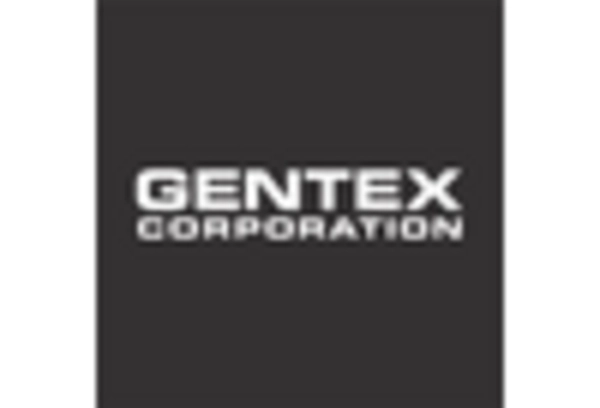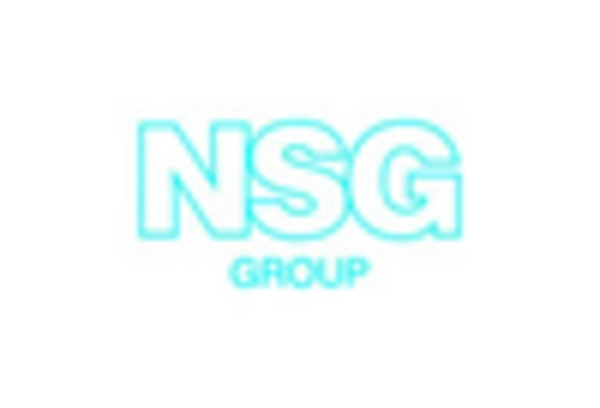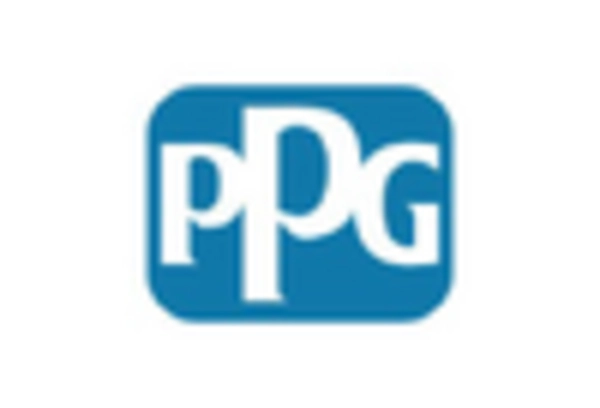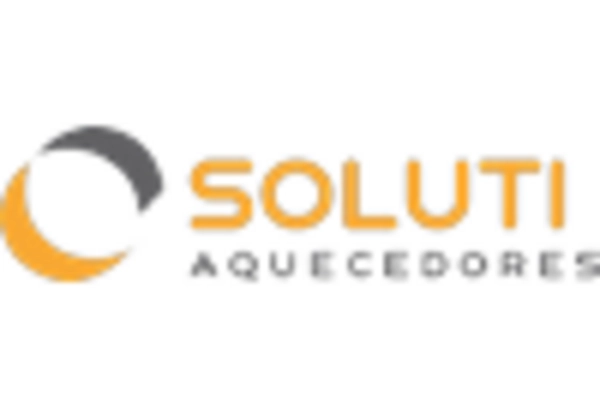Integration with Smart Technologies
The Automotive Smartglass Market is witnessing a notable trend towards the integration of smart technologies within vehicles. This integration encompasses features such as heads-up displays, augmented reality, and connectivity with mobile devices, enhancing the overall driving experience. Smart glass can serve as a platform for these technologies, providing a seamless interface between the driver and the vehicle's systems. As vehicles become more connected, the demand for smart glass that can support these functionalities is expected to increase. Market analysis suggests that the integration of smart technologies in vehicles could lead to a significant increase in the adoption of smart glass solutions, potentially doubling the market size within the next decade. This trend reflects a broader movement towards smarter, more connected vehicles.
Consumer Demand for Enhanced Safety Features
The Automotive Smartglass Market is significantly driven by consumer demand for enhanced safety features in vehicles. As safety becomes a paramount concern for consumers, manufacturers are increasingly incorporating advanced technologies into their designs. Smart glass can contribute to safety by providing features such as improved visibility and glare reduction, which are essential for safe driving. Additionally, the integration of smart glass with ADAS can enhance features like lane departure warnings and collision avoidance systems. Market data indicates that the automotive safety systems market is projected to grow substantially, with smart glass playing a crucial role in this evolution. This heightened focus on safety is likely to propel the growth of the Automotive Smartglass Market.
Sustainability Focus in Automotive Smartglass
The Automotive Smartglass Market is increasingly influenced by a growing focus on sustainability and environmental responsibility. As consumers become more environmentally conscious, manufacturers are compelled to adopt eco-friendly materials and production processes. Smartglass technologies, such as those that reduce energy consumption and enhance vehicle insulation, align with this trend. The use of sustainable materials not only appeals to eco-conscious consumers but also helps manufacturers comply with stringent regulations regarding emissions and energy efficiency. Market data indicates that the demand for sustainable automotive solutions is expected to rise, with smart glass playing a pivotal role in reducing the carbon footprint of vehicles. This shift towards sustainability is likely to drive innovation and investment in the Automotive Smartglass Market.
Technological Advancements in Automotive Smartglass
The Automotive Smartglass Market is experiencing a surge in technological advancements that enhance vehicle functionality and user experience. Innovations such as electrochromic and photochromic technologies allow for dynamic tinting of windows, providing drivers with customizable light control. This adaptability not only improves comfort but also contributes to energy efficiency by reducing the need for air conditioning. According to recent data, the market for smart glass in automotive applications is projected to grow at a compound annual growth rate of approximately 20% over the next five years. This growth is driven by the increasing demand for advanced driver-assistance systems (ADAS) and the integration of smart technologies in vehicles, which are becoming essential features in modern automobiles.
Regulatory Support for Advanced Automotive Technologies
The Automotive Smartglass Market is benefiting from regulatory support aimed at promoting advanced automotive technologies. Governments worldwide are implementing regulations that encourage the adoption of innovative solutions to improve vehicle safety, efficiency, and environmental performance. These regulations often include incentives for manufacturers to invest in smart technologies, including smart glass. As a result, the Automotive Smartglass Market is likely to see increased investment and development in response to these supportive policies. Market forecasts suggest that regulatory frameworks will continue to evolve, further driving the adoption of smart glass technologies in vehicles. This supportive environment is expected to foster innovation and growth within the Automotive Smartglass Market.


